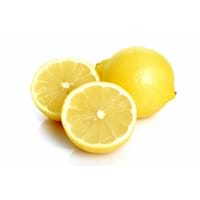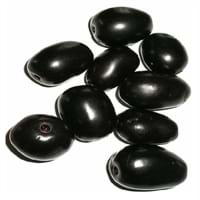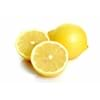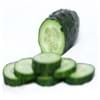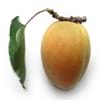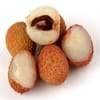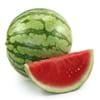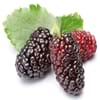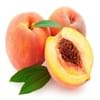Health Benefits
Arthritis treatment, Asthma treatment, Cancer prevention, Kidney stone treatment, Prevents constipation, Purging blood, Treatment of rheumatism
Cancer prevention, Heart care, Increase in haemoglobin, Regulates Blood Sugar, Ulcer prevention
General Benefits
Boosts immune system, Cures headache, Cures fever, Digestive aid, Flu treatment, Maintains healthy cholesterol level, Treatment of common cold
Boosts immune system, Digestive aid, Fights against infections, Strengthens bones
Skin Benefits
Heals sunburn, Reduces wrinkles, Skin rejuvenation, Treatment of acne, Treatment of skin diseases
Brightens and lightens complexion, Skin cleansing, Skin rejuvenation, Treatment of acne, Treatment of dark spots
Hair Benefits
Prevents hair loss, Treatment of dandruff
Promotes longer and healthier hair, Protects hair
Allergy Symptoms
Eczema, Hives, Inflammation, Itching, Skin rash, Swelling
Abdominal pains, NA
Side Effects
Diuretic effects, Heart burn, Tooth decay, Chances of sunburn
Decrease in blood sugar levels, Allergic reaction, Throat irritation, Throat swelling, Possibly unsafe during pregnancy
Best Time to Eat
Along with meal, Best to drink lemon water on an empty stomach., Don't consume at night and before bed
As a snack in the late afternoon, Don't consume at night and before bed, Eat the fresh ones, avoid mixing with any other foods, don't eat after meal., Morning time (before lunch), Strictly avoid empty stomach
Vitamin B5 (Pantothenic Acid)
Not Available
Vitamin B9 (Folic acid)
Not Available
Vitamin C (Ascorbic Acid)
Vitamin E (Tocopherole)
Not Available
Vitamin K (Phyllochinone)
Not Available
Lutein+Zeaxanthin
Not Available
Phytosterol
Not Available
Calories in Fresh Fruit with Peel
Not Available
Calories in Fresh Fruit without Peel
Not Available
Calories in Frozen Form
Not Available
Calories in Dried Form
Not Available
Calories in Canned Form
Not Available
Type
Citrus, Tree fruit
Tree fruit, Tropical
Season
All seasons
Monsoon, Summer
Varieties
Avalon Lemon, Bears Lemon, Buddha's Hand, Bush Lemon, Citron, Eureka Lemon, Dorshapo Lemon, Finger Citron and Fino Citron
Ram Jarnun and Paras
Color
Yellow, Yellowish-orange
Black, Magenta, Purple
Inside Color
Yellow
Purple
Taste
Sour
Astringent, Sweet
Origin
China, India
Bangladesh, India, Indonesia, Malaysia, Nepal, Pakistan, Philippines, Sri Lanka
Soil Type
Well-drained
Loam, Sandy loam, Well-drained
Climatic Conditions
Hot, Sunny
Humid, Rainfall
Facts about
- Oil extracted from lemon peels is used for fingerboard of guitars.
- During Renaissance, ladies used lemons to redden their lips.
- Aroms of lemon decreases the level of stress hormones.
- Wood of jambul tree is water-resistant wood & is used in railroads and to implement engines in the well.
- In Indian mythology, it is said that Jambul fruit was revered by Buddha.
- Jambul has a huge importance in Ayurveda.
Other Countries
Argentina, Brazil, India, Iran, Italy, Mexico, Spain, Turkey, United States of America
Bangladesh, Indonesia, Malaysia, Nepal, Pakistan, Philippines, Sri Lanka
Top Importer
United States of America
Not Available
Top Exporter
Mexico
India
Botanical Name
Citrus limon
Syzygium cumini
Synonym
Not Available
Eugenia cumini
Subkingdom
Tracheobionta
Tracheobionta
Division
Magnoliophyta
Magnoliophyta
Class
Magnoliopsida
Magnoliopsida
Order
Sapindales
Myrtales
Family
Rutaceae
Myrtaceae
Species
C. limon
S. cumini
Generic Group
Citrus fruit
Not Available
Difference Between Lemon and Jambul
We might think that Lemon and Jambul are similar with respect to nutritional value and health benefits. But the nutrient content of both fruits is different. Lemon and Jambul Facts such as their taste, shape, color, and size are also distinct. The difference between Lemon and Jambul is explained here.
The amount of calories in 100 gm of fresh Lemon and Jambul with peel is Not Available and 60.00 kcal and the amount of calories without peel is 29.00 kcal and Not Available respectively. Thus, Lemon and Jambul belong to Low Calorie Fruits and Low Calorie Fruits category.These fruits might or might not differ with respect to their scientific classification. The order of Lemon and Jambul is Sapindales and Myrtales respectively. Lemon belongs to Rutaceae family and Jambul belongs to Myrtaceae family. Lemon belongs to Citrus genus of C. limon species and Jambul belongs to Syzygium genus of S. cumini species. Beings plants, both fruits belong to Plantae Kingdom.
